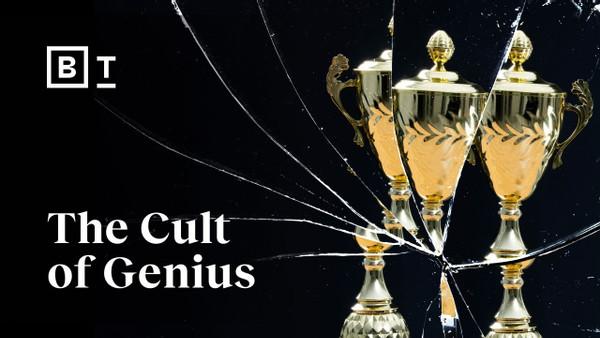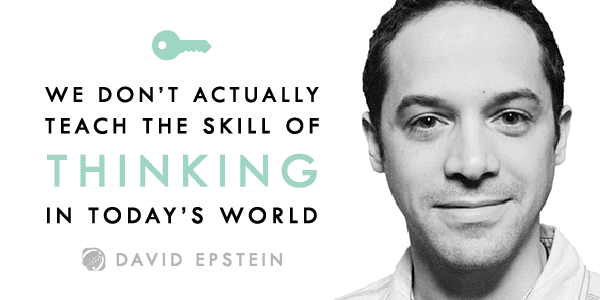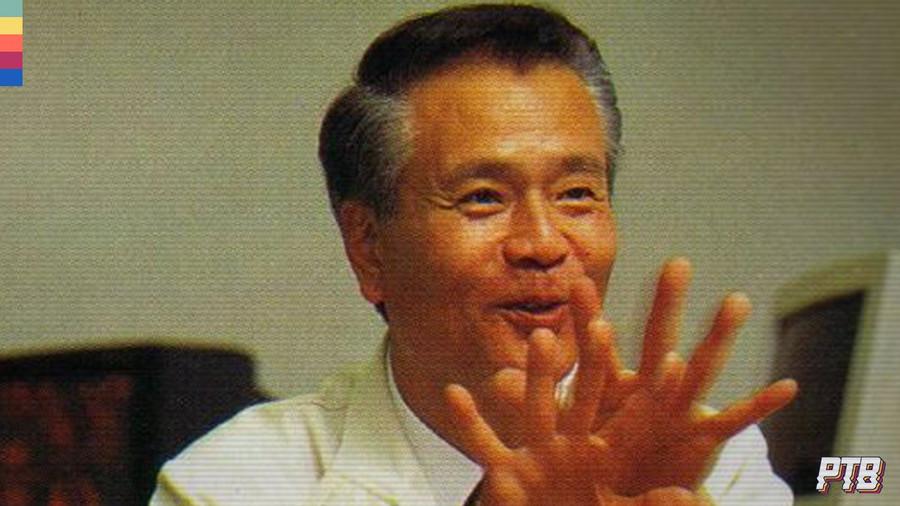Why divergent thinkers beat geniuses in the real world | David Epstein
Curated from: Big Think
Ideas, facts & insights covering these topics:
10 ideas
·13.4K reads
77
3
Explore the World's Best Ideas
Join today and uncover 100+ curated journeys from 50+ topics. Unlock access to our mobile app with extensive features.
About David Epstein
David Epstein is the author of the New York Times bestsellers Range: Why Generalists Triumph in a Specialized World and The Sports Gene.
He holds a Master's degree in Environmental Science and Journalism, and has worked as an investigative reporter for ProPublica and a senior writer for Sports Illustrated.
90
2K reads
What Makes Prodigy Stories Attractive?
One of the reasons that David points out on why prodigy stories are so attractive is because we're used to thinking of everything as being a trajectory. Hence why it's intuitive to want to give a kid a head start.
The problem with that is we don't follow linear progressions.
89
1.6K reads
"We are not wired correctly to interpret our own development, necessarily, 'cause we just want what comes the fastest when in many cases, slower development is actually the best in the long run."
DAVID EPSTEIN
105
1.57K reads
World as a Learning Environment
We can think of the world as a learning environment, and the milieu in which you have to develop some kind of skill.
We can distinguish between two different learning environments:
- Kind learning environments
- Wicked learning environments
94
1.39K reads
Kind Learning Environments
In this type of learning environments, we find clear rules and patterns tend to repeat. The performed task doesn't change.
F.e. Think of chess, the grandmaster's advantage is essentially based on recognizing recurring patterns.
96
1.37K reads
Wicked Learning Environments
In wicked learning environments, we find these characteristics:
- Information might be obscured
- There are no discernible rules
- The task can change
- Even the feedback you get can be delayed and inaccurate
Most of the work we do nowadays is more toward the wicked end of the spectrum, where we can't just count on things being the same over and over or giving us perfectly accurate feedback.
103
1.19K reads
The Wicked World
For the wicked world, you want a really broad training base, what scientists call a sampling period, where you're forming conceptual frameworks and abstract ideas that you can bend to the activity as the activity itself changes.
In the 20th Century the biggest contributions came from Specialists. In the Information Age the biggest contributions started coming from Generalists.
Generalists are people who spread their work across various tech domains often taking something from one and bringing it to another area where it was seen as extraordinary.
103
1.12K reads
Gunpei Yokoi
Gunpei Yokoi didn't score well on his electronic university exams, resulting in him having to apply for a low tier job as a machine maintenance worker at a playing card company: Nintendo.
One day, Nintendo's president saw him playing around with an extendable arm called the Ultra Hand, and told him "Turn that into a toy, we're going to market." And it's sort of a success.
This resulted in Nintendo's president telling Gunpei: "All right, you're going to start a game and toy operation."
85
1.12K reads
Lateral Thinkg with Withered Technology
Gunpei wasn't equipped to work on the cutting edge, but there was so much information available that he could take it from different domains and merge it.
As a result, he developed this philosophy which he named Lateral Thinking with Withered Technology.
- Withered Technology: technology that's already well understood, easily available and, often cheap.
- Lateral Thinking: taking it from an area where everyone is used to it and merging it with something else.
This is what he used for Gameboy. Nintendo still uses this philosophy nowadays.
101
1.06K reads
"The more we work in a rapidly changing world, where we're not exactly sure what we should do next, or what work will look like next year or in five years or years, the more we want those people who have had a broad view and can kind of draw different stories of knowledge.
And one of the ways I think about operationalizing that is essentially having a short term mindset.
[...]
We're essentially telling someone to choose for a person they don't yet know who is gonna be working in a world they can't yet conceive.
Compare yourself to yourself yesterday and proceed that way"
DAVID EPSTEIN
105
1K reads
IDEAS CURATED BY
Business Administration and Management Student | Blockchain, DEFI & Web3 | Social Worker | "Fix the money & fix the world."
CURATOR'S NOTE
Through this video, the best-seller author, David Epstein, demonstrates why divergent thinkers (or generalists) beat prodigies in the actual changing world.
“
Max Pamies i del Campo's ideas are part of this journey:
Learn more about problemsolving with this collection
How to create a cosy and comfortable home environment
How to cultivate a sense of gratitude and contentment
The benefits of slowing down and enjoying simple pleasures
Related collections
Similar ideas
Read & Learn
20x Faster
without
deepstash
with
deepstash
with
deepstash
Personalized microlearning
—
100+ Learning Journeys
—
Access to 200,000+ ideas
—
Access to the mobile app
—
Unlimited idea saving
—
—
Unlimited history
—
—
Unlimited listening to ideas
—
—
Downloading & offline access
—
—
Supercharge your mind with one idea per day
Enter your email and spend 1 minute every day to learn something new.
I agree to receive email updates









